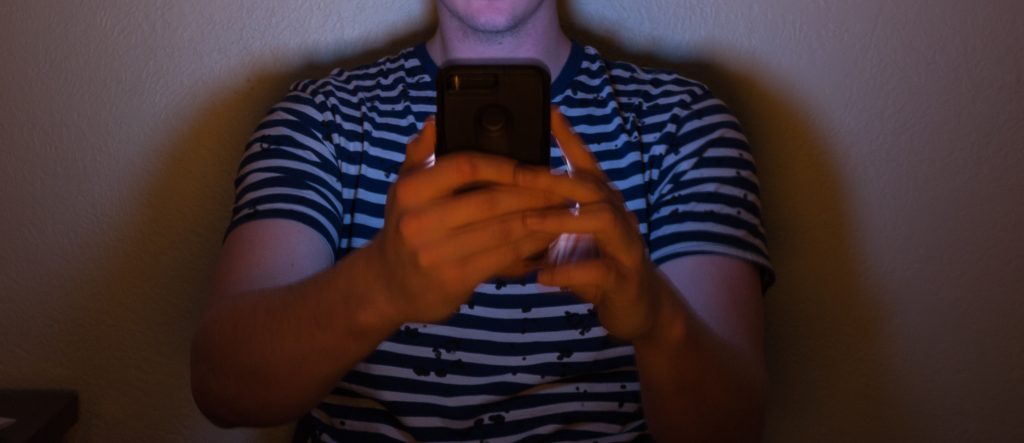
Paul F. Davis | Managing Editor
When looking at the numbers, it’s clear that people like porn… a lot. According to the American Addiction Centers, more than 184 thousand dollars are spent every minute on porn. With our society’s ease of access, this spending is not going to stop ー it’s probably only going to increase.
Not only is it easy to access porn, but it is also more affordable and anonymous than ever before. Back when our parents were our age, the main means for purchasing porn was through some adult shop or by asking the person behind the mini-market counter for a Playboy. Now, any 11 year old with an unfiltered access to the internet can go online and find porn they could never even think to look up with one search of Pornhub.
It’s not that 11 year olds are the only people using porn. In reality, a large number of people are consuming porn. The American Psychological Association’s “Handbook of Sexuality and Psychology” states that between 50 percent to 99 percent of men and 30 percent to 86 percent of women have used porn in their lifetime. For many people, it can be a safe place to explore sexual fantasies alone or with a sexual partner in a new, interesting way. But for some, statistically men, porn usage can take a person down a dark, lonely path.
In an article titled “Is Internet Pornography Causing Sexual Dysfunctions? A Review with Clinical Reports” authored by Brian Clark and associates from 2016 in the Journal of Behavioral Sciences, men are reporting a sharp rise in erectile dysfunction, delayed ejaculation, decreased sexual satisfaction and diminished libido during partnered sex that cannot be explained by traditional causes. Although a direct line of causation has not been made to porn usage, a strong correlation has been documented.
In 1999, 5 percent of sexually active men, ages 18 to 59 had erectile dysfunction. By 2011 that same statistic had shot up to 28 percent according to the same article by Brian Clark. A major change in men’s sexual lives in that time was access to easy, anonymous and cheap porn.
What’s important to know is that it’s not anyone’s fault if they are having these problems. This is what porn does to your mind. Due to the huge dopamine dump that is associated with porn use, the brain fundamentally changes at the neuronal level which was found in the study “Brain Structure and Functional Connectivity Associated With Pornography Consumption”, and change is associated with tainted sexuality, increases secrecy, makes for less intimacy and increases the likelihood of depression. But the brain is plastic, it can change.
This problem doesn’t just affect the one addicted. It affects partners, too. Imagine a situation where you’re about to have sex with your partner, and they just can’t seem to get aroused. For many, their thoughts then go straight to “they must think I’m not enough” and that stays with them, that hurts them.
This story isn’t just anecdotal. Sex researchers Destin Stewart, Ph.D. and Dawn Szymanski, Ph.D found in their 2012 study that “(female partners) experienced lower self-esteem, poorer relationship quality and lower sexual satisfaction” while in this position.
For those that think they may have a problem, the important thing to know is that it can be controlled, and help is available. Although there isn’t a scientifically proven way to treat an unhealthy relationship with porn, one way to start is by being honest and kind with yourself and accept that the problem exists and it can be controlled. Then, look for accountability; for those that have a sexual partner, be open with them about what’s going on so they won’t beat themselves up over something that they can’t control, and so they can help.
For those that don’t have a partner, support can be found from where the problem likely came from: the internet. There is an app called Fortify which provides support groups and that will help you create goals for yourself, monitor habits and congratulate you when porn use is reduced.
For those looking for resources that are on campus, Abby’s House is an option which is in the Werner University Center, Room 106. They can be contacted via email at abbyshouse@wou.edu, called at 503-838-821 or reached in person from 8 a.m. to 5 p.m. Also, the Student Health and Counseling Center always takes on new students; they can be reached at 503-838-8000 or in person from 8 a.m. to 5 p.m.
So, be kind with yourself, know that recovery is possible and know that if you have an unhealthy relationship with porn you deserve more from your sexuality than a computer screen.
Contact the author at pfdavis14@wou.edu
Photo courtesy of Ashlynn Norton

